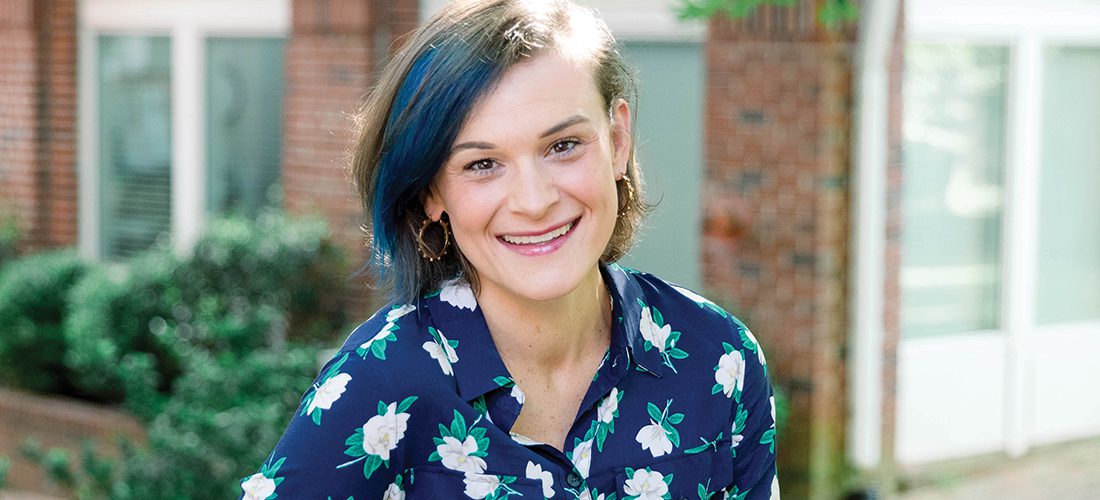Well + wise: Taking inventory
October 31, 2023

And monitoring the red flags that can show us how we’re really doing
by Juliet Lam Kuehnle
“How are you?”
“Fine, thanks, how are you?”
“Fine, thanks!”
But, are you really? We get so accustomed to giving rote, automatic responses because we’re rushed, we’re afraid of making things awkward, and quite often we’re not actually taking the time to ask ourselves how we truly are doing.
So much of my mission is around encouraging people to tend to their mental health just as they do their physical health. You go to annual doctor appointments, or you visit the urgent care when something acute happens. And you likely don’t have shame when telling people about these appointments. We need to treat taking care of our mental health the same.
If we’re on autopilot or not being intentional about allowing ourselves to check in with how we’re doing, we are at risk. We leave emotions unexpressed, our nervous systems remain dysregulated, and our relationships, cognitive functioning and physical health can become impaired. When we recognize that we all have mental health — emotional, psychological and social well-being — we can find ways to make sure we’re doing OK with it — and learn coping strategies if we’re not.
I created an inventory for my clients that I adapted from Brene Brown’s Vowel Check. I encourage clients to do this each morning or night to mindfully assess how they’re doing — and determine if there’s anything they might be holding onto that could negatively impact their mental or physical health.
A: To what can I/did I bring more AWARENESS today?
This can be around things that don’t serve you, such as negative self-talk, or other things you want to be more intentional about.
E: Have I practiced EMPATHY today?
This is about extending compassion to others and to yourself. It is seeing yourself and others in all of our humanness, and practicing acceptance.
I: What have I done for myself today?
This is self-care, both proactive and reactive!
O: Have I practiced taking OPPOSITE ACTION today?
Sometimes our stress, anxiety, depression and self-doubt want us to play it safe, or they cause us to react. Taking the opposite action to this can build our confidence and actually improve symptoms.
U: Am I carrying any UNEXPRESSED or UNEXPECTED emotions?
Let yourself name it to tame it! Acknowledge and honor whatever emotions might have come up throughout the day, then decide if you want or need to process them.
Y: YEAH! What went well today?
Name 1-3 things that you’re grateful for — it will increase your feel-good hormones.
Juliet spoke with Laura Hays, an emergency medicine physician and co-founder of Lasting Impact Wellness Group (LIWG), a health coaching service and consultancy. Below are excerpts from their interview, lightly edited.
What drew you to emergency medicine, and later to start Lasting Impact Wellness Group?
There isn’t one specific demographic in the emergency department. I like meeting people from all walks of life and learning from them. I like knowing that I know a little bit about everything as opposed to everything about a little bit. I’ve also been teaching yoga for over 20 years, and I wanted to marry these two things I love: medical training and mind/body connection and preventative care. As a physician, I’m considered a healthcare worker, but particularly in emergency medicine, it’s often more accurate to describe myself as a “sick care” worker. Patients are acutely sick and sometimes not healthy at all. While I love that, I felt I was missing that “healthcare” portion of it. Through LIWG, we seek to help people optimize their health and well-being to minimize their need for sick care.
What are you willing to share about your own mental health journey?
I experienced panic attacks in college. It taught me that we can be drifting through life and, on the surface, it looks like everything is going well. We may not be feeling particularly stressed or anxious about a particular thing — and then it sneaks up on you. I’m sure there were hints of anxiety earlier that I hadn’t recognized, so that was a profound experience for me. One of the most awful things about panic and anxiety is the fear of having it come back. That’s almost worse than the fear itself: the fear of it returning.
When you have patients who have no familiarity with panic/anxiety and now it’s part of their story, how do you guide them through that?
Helping patients understand the physiology of what’s happening in the body is helpful. I try to explain that a) you’re not crazy, b) this isn’t in your head, and c) this is a real physiological response. I explain what your sympathetic nervous system is doing. Our nervous system was designed to protect us, and it doesn’t understand the difference between perceived and real threats. I help people understand that there doesn’t have to be a major life event, it can be the little nagging, subtle everyday items that they think they’re managing. But deep down, their body is in a constant low level of stress that is affecting sleep and relationships and, over time, can lead to an eruption.
The psychoeducation can shift one’s relationship to anxiety so drastically. Our adaptive nervous-system response (fight/flight/freeze) is amazing, but sometimes unhelpful when the perceived threat isn’t real.
Yes, your body is physically responding. It helps to validate that and for people to know that while it is automatic, we can manipulate it. I also coach patients’ family members or friends, too, to also educate them and give them tips.
How else do you encourage patients to take inventory of how they’re really doing?
We encourage our clients to look at what is going on for them in the short-term, medium-term and long-term. We help people figure out how to cope, how to manage, and how to recognize the impact of what’s going on in one’s mind and body. If we’re not paying attention to that, we’re going to miss something. We might miss great opportunities to control the mind/body or miss red flags that get neglected or ignored and can lead to something bigger. SP
Juliet Kuehnle is the owner and a therapist at Sun Counseling and Wellness and author of Who You Callin’ Crazy?! The Journey From Stigma To Therapy. The full interview featuring Laura Hays can be found on Instagram @YepIGoToTherapy or wherever you stream podcasts.




